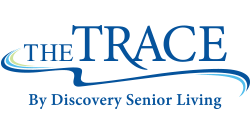The task of choosing senior living and care for your loved one can seem overwhelming at times. Older adults can choose various levels of care and various options based on their needs, age, and financial status. It is our goal to provide you with a Senior Living Glossary to help you understand some of the commonly used terms when searching for senior housing and care.
Activities of Daily Living (ADL)
These are everyday tasks. ADLs of a basic nature include using the toilet, taking a shower or a bath, getting out of or into a chair or bed, dressing, eating, and more.
Alzheimer’s Disease
Thinking skills and memory are slowly destroyed by this brain disorder. Even carrying out the simplest tasks is eventually interfered with. More often than not, people in their mid-60s can show symptoms when they are affected by the late-onset type of Alzheimer’s.
Assisted Living
If a person has disabilities, is at retirement age or older, and/or requires assistance with ADLs (see above), they may choose to enter an assisted living program (usually in a skilled nursing facility, senior living community, etc.). Here, they will also receive needed medical attention as well as help with daily activities.
Caregiver
This can be a paid helper or family member who looks after a disabled, elderly, or sick person – or child – on a regular basis.
Dementia
When cognitive functioning is lost, it can be referred to as dementia. This includes reasoning, remembering, and thinking to the point where a person’s activities and daily life are interfered with. In some cases, dementia is caused by Alzheimer’s (see above).
Long-Term Care Insurance
For services that assist a person with activities of daily living, a preselected amount is reimbursed to holders of long-term care policies. A selection of benefits and coverages are usually available so the person can get the care they need when needed.
Medicaid
For people with low income, this is a public health insurance program in the United States. A wide array of health services is covered under Medicaid.
Medicare
For people 65 years of age and older, this is the health insurance program provided by the federal government in the United States. In some cases, for younger individuals with disabilities, Medicare may be available.
Medication Management
When medications are prescribed for an individual, the process of overseeing them is referred to as medication management. This ensures that their medication is taken properly and that the outcome desired is achieved.
Memory Care
For people with memory issues, specialized, intensive care is provided in the form of residential long-term care. Memory care programs are frequently available in certain retirement communities.
Occupational Therapy
Concerned with promoting well-being and health through occupation, this is a client-centered health profession. Enabling individuals to participate appropriately in everyday activities is the main goal of this therapy.
Veterans Aid And Attendance
Also referred to as household benefits, for qualified veterans and survivors, the monthly VA pension amount is added to/increased by this monthly amount. People who are housebound or require assistance with daily activities may qualify.
